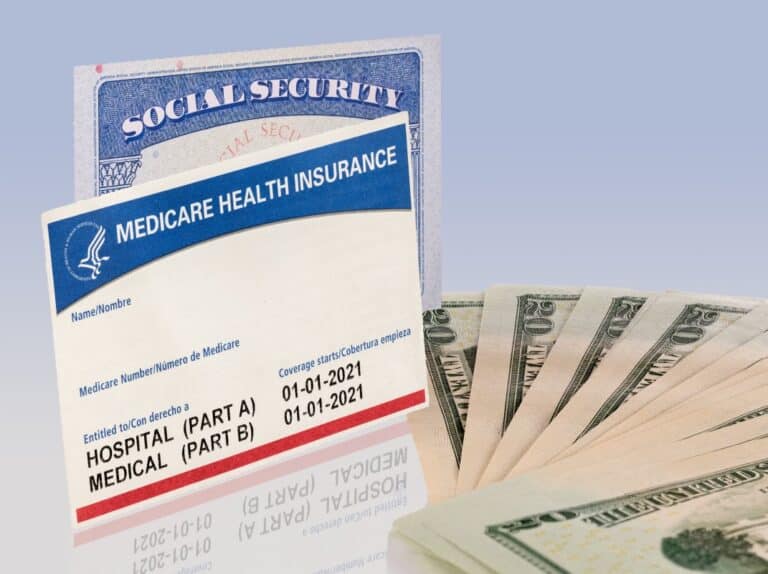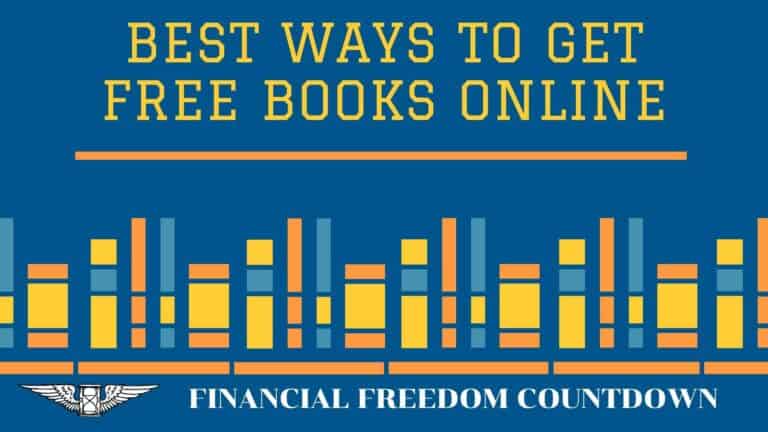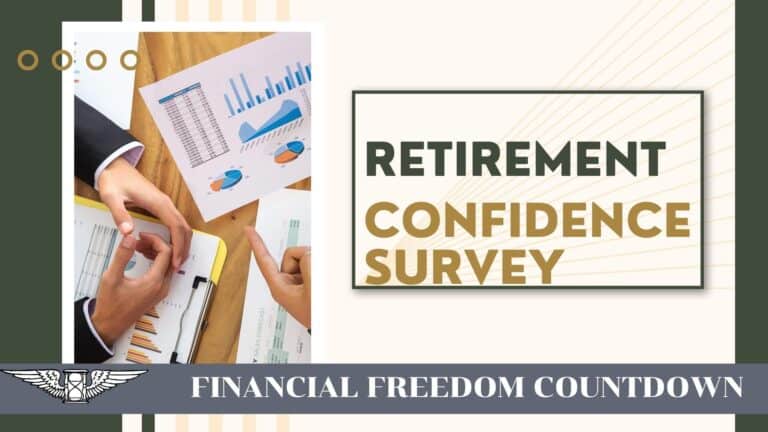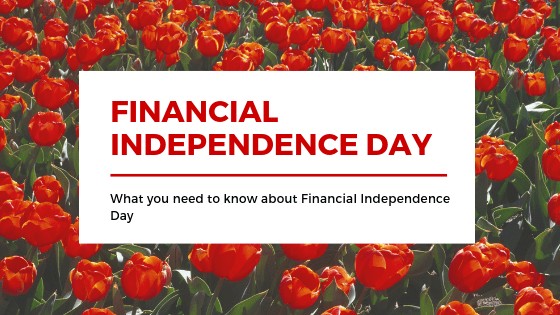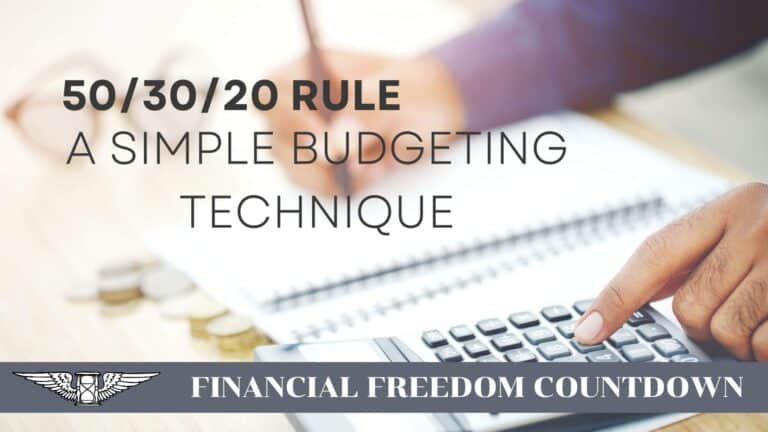How To Pay Off Mortgage in 5 Years: 11 Tips To Get Started
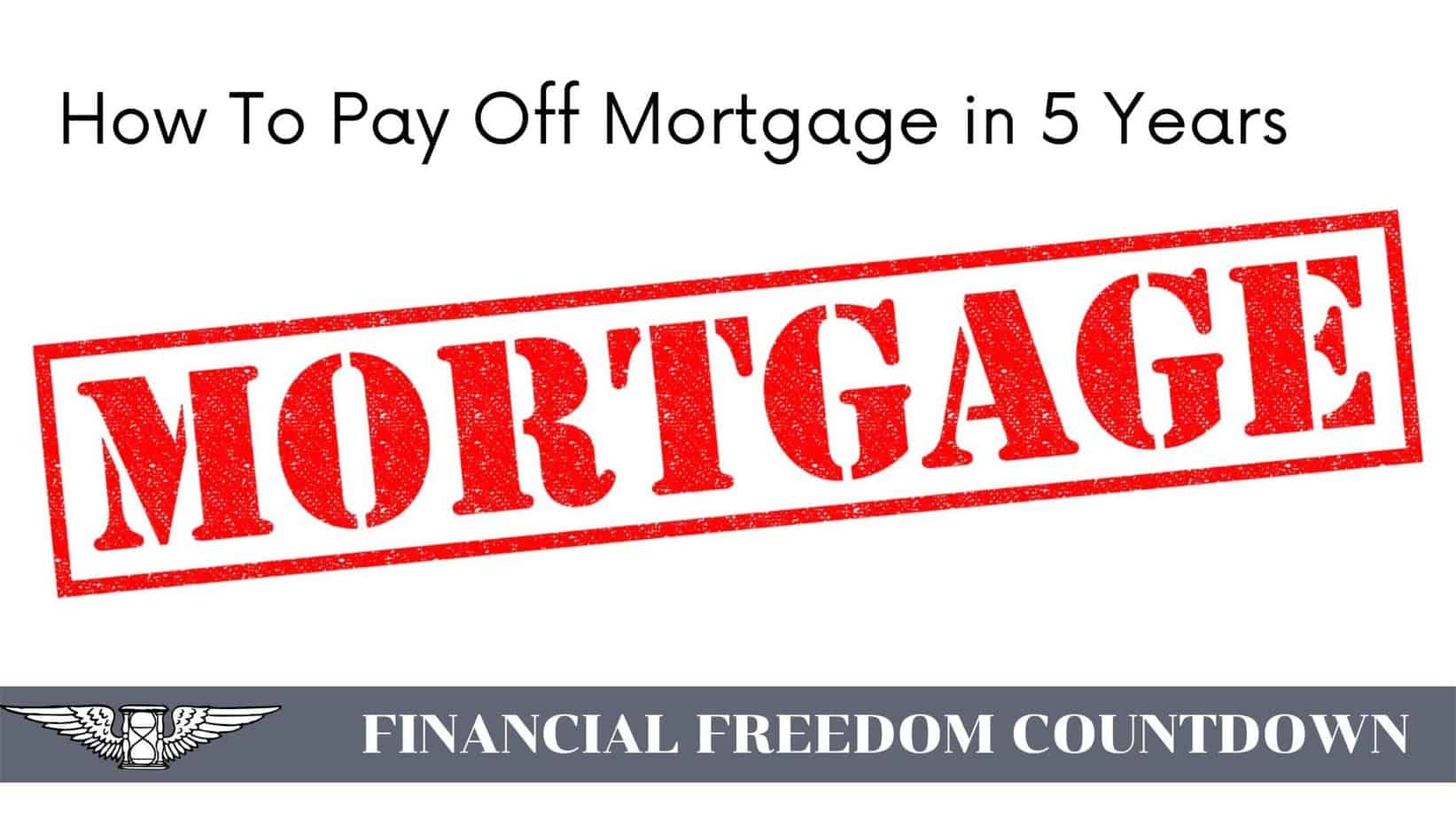
Owning our own home is called the “American Dream.” But, do you ever own your own home until you pay off your mortgage? Paying off the mortgage early is a goal that many homeowners strive for.
On the one hand, with the increase in inflation, the 30-year fixed mortgage rates have spiked to above 5%, making monthly payments unaffordable. Individuals are wondering is now a good time to buy a house and considering postponing the home buying process. However, rents have also increased, making it a difficult choice to continue renting.
Many individuals are now opting for a 5/1 ARM, assuming that rates will be lower in the future and refinancing would be possible.
However, if one cannot refinance, is it possible to pay off the mortgage earlier? Let us look at the pros and cons and 11 tips on how to pay off mortgage in 5 years.
Pros of Paying Off the Mortgage Early
There are pros and cons to paying off a mortgage early. One should weigh each of these carefully before making financial decisions.
Even if someone starts making higher monthly payments, they don’t have to continue making higher monthly mortgage payments. If something comes up financially, they can go back and make the minimum mortgage payment. The pros of paying off a mortgage early include:
- Possibly saving thousands of dollars in total interest payments.
- Acts as a forced saving mechanism because individuals are more motivated when they have a goal to work towards.
- Allows a homeowner to tap the equity in the home using cash-out refinancing, which can be used for not only home improvements but also emergencies.
- Will offer a predictable rate of return, equal to the interest rate on the balance that is being paid off.
- If the home loan is an adjustable-rate mortgage that could increase soon, paying the loan off earlier can save even more on interest payments.
- Gives the homeowner peace of mind knowing that they now own their home outright.
- The primary home can be used as an asset protection strategy depending on state laws.
Cons of Paying Off the Mortgage Early
The cons of paying off a home mortgage earlier include:
- If a mortgage is paid early, a homeowner is no longer eligible for the federal mortgage tax refund deduction
- Paying the mortgage early will tie up a large amount of your net worth and liquidity in the home. Your liquid net worth will be much lower than the expected average net worth by age.
- With money tied up in the mortgage payments, the homeowner can miss out on significant gains in other investments, which provide a higher rate of return. For example, investing in the S&P 500 has produced annualized returns of over 8% for several decades.
- The homeowner might not realize as much gain from the home if the housing market should drop and they have to sell quickly for some reason.
- A fixed-rate mortgage provides the best inflation hedge because you pay debt with cheaper money.
Other factors that could come into play are interest rates and the fine print of the mortgage. With interest rates kept so low over the past decade, many homeowners have a very low-interest mortgages. Paying the mortgage early might not matter that much to them.
Some lenders might have a prepayment penalties clause in the fine print. If the mortgage company has one of these clauses, paying off your mortgage early could cost money. That is not common since section 1414 of the Dodd-Frank Act limits prepayment penalties, but it is better to validate your loan documents.
Pay Debts Before Paying Off a Mortgage Faster
Even though this article focuses on paying off a mortgage early, there are more critical financial items to be taken care of first. A homeowner needs to save money in an emergency fund first.
In our working years, our biggest income-producing asset is our human capital.
An emergency fund should have enough money to pay essential bills for at least three to six months after a job loss.
Emergency savings should be kept in an FDIC-insured account, like a bank account, or government bonds like I-Bonds and is only to be used for emergencies. Don’t worry that banks pay lower interest rates on savings accounts. It might be tempting to use every dime to pay off your mortgage quickly, but if you should lose your job, you will need that emergency money to keep the house.
One should pay other debts first. If a homeowner has other debts with a higher interest rate than the mortgage debt, you should pay the higher debts first. Obligations like this can include high-interest credit cards, student loans, car loans, or other personal loans.
Paying off high-interest rate credit cards and other debt is like paying yourself that interest. Once you are free of those high-interest payments, you will not have to worry about paying that high-interest rate. It is always best to stay out of credit card debt.
And even with excellent credit scores, the interest rate on most credit card debt can be over 12%. Once the credit card debt with the highest interest rates is paid, you can pay the debts off that charge less interest.
The Debt-to-Income Ratio
Paying off the mortgage in five years will depend a lot on your mortgage in the first place. If you aim for a mortgage well below your debt-to-income ratio, using the above ideas and good planning should help you pay it off quicker.
The debt-to-income ratio is calculated by taking all debts, including car payments, credit card debt payments, student loans, and other obligations, and adding in the new mortgage payment.
The calculation does not use monthly expenses like phone bills, groceries, or utilities. Lenders will give someone a mortgage with a debt-to-income ratio of up to 50%, but only for qualified buyers using conventional loans.
Many would jump at that mortgage, but if someone has a goal of paying off their mortgage quicker, they should not go for it. A homebuyer should find something more in a price range with a lower debt-to-income ratio. It would be hard to pay a mortgage off quicker and continue to pay on their other debts at the same time with a ratio of 50%.
If the financial goal is to pay off the mortgage faster before a house is purchased, make sure to get a loan that is appropriate to attain this goal.
How To Pay Off Your Mortgage in 5 Years
If the plan is to pay off the mortgage within five years after buying the house, here are some ideas to help you pay off the mortgage quicker.
Make a Budget
Homeowners need to create a budget that has to be strictly followed. A budget will tell you where the money has gone each month and where you must make changes to pay off your mortgage in five years.
Budgets are like restrictions. With a budget, you can only use so much of your monthly income for each category. And one of those categories has to be the mortgage payment. Before you make a budget, figure out much money has to be paid on the mortgage to pay it off sooner.
If items in the budget have become too expensive, they will have to be cut out of the monthly budget to stay on track to pay the mortgage company. A spending plan will keep everyone on track to pay for a home in five years.
If you do not already have a budget, adhering to the 50/30/20 budget rule is a rough starting point. However, you will need to get more granular to pay off your mortgage in 5 years.
Personal Capital is a free and effective budget template for you to use. You need to link your accounts for Personal Capital to work optimally. Once you have linked your accounts, Personal Capital analyses your various transactions and automatically creates a budget for you based on your spending patterns.
After analyzing your budget, you can use a service like Trim that looks at all your current subscriptions and saves money by eliminating unnecessary money leeches. Also, instead of paying the full price, see if Trim can do the work negotiating your cable, phone, and internet bills lower.
Purchase an Affordable Home
Mortgage rates have been low recently, which has allowed home buyers to afford more for the money. But as mortgage rates start to rise, it takes more money to buy the same-sized home.
Figure out how much house you can afford. If the house payments take up half of your paycheck, you will have difficulty paying for necessities, especially if you have a high debt-to-income ratio. Mortgage lenders like the 28% rule.
The rule states that you should not spend more than 28% of your monthly gross income on the mortgage payment. If the goal is to pay the mortgage off faster, you will need a lower percentage for higher mortgage payments.
Double the Monthly Mortgage Payments
Making additional payments to the principle of the monthly payment will help shorten the length of the mortgage loan. Additional payments on the principal will save money since the homeowner would be effectively shortening the loan term.
Using an early payoff calculator that will show how much a homeowner will save if they make an extra payment each month on the monthly loan. For example, a person has an original $300,000 mortgage loan amount on a 30-year fixed mortgage. If they double their monthly payment, they will save $171,003 in total interest with an earlier payment schedule of 22 years and 0 months.
Make a Large Down Payment
That is probably one of the best ways to pay a mortgage quicker. A mortgage company can offer potential homebuyers a low down payment to get them into a new home sound enticing. But that can make it almost impossible to pay a mortgage off quicker.
At the very least, try to have a 20% down payment. A 20% or more down payment lets you avoid paying private mortgage insurance (PMI). This insurance protects the mortgage lender if the homeowner defaults on the mortgage loan.
If you have to pay PMI, a portion of the monthly payment is put aside in case you default on the mortgage. Paying the private mortgage insurance each month will hinder the ability to pay off the mortgage in five years.
Downsize to a Smaller Home
If a homeowner decides to pay off the current mortgage within five years after buying a house, they can always sell it and buy a smaller home. With a large home, it is more than just the higher mortgage payments. Bigger homes cost more to maintain. There are higher costs to heat and cool a larger home, and these utility bills can take a big part of the monthly budget.
If you can live in a smaller home, it could be wise to sell the more prominent home and downsize it to a smaller home with lower costs. If the decision is to downsize to a smaller home, right now would be a good time to sell. The housing market is still hot because of the high housing demand and low supply. A real estate agent can help you sell your home for top dollar and help you find a smaller home.
The supply and demand situation with housing today could make it hard to find a new home. But most likely, your current home has increased in value significantly over the past several years. You could make a larger down payment on a smaller home and plan to pay off that mortgage in five years.
Refinance
Most homeowners go for a 30-year mortgage when they buy a house. You can refinance your home if you decide to pay off your mortgage in five years. The decision to refinance could depend on the current interest rates. If you are able to refinance at a lower interest rate, more of the monthly payments will go towards the loan principal.
Even though interest rates are rising at this time, you might still be able to find that you can refinance at a lower rate than when you first bought your home. Refinancing also comes with additional costs. If the math works for you, this is another option to get lower rates and pay more towards the principle of the loan.
Act as if You Did Refinance
Even if you don’t refinance to a shorter mortgage, you can act as if you did, and you won’t have to pay closing costs or other extra fees. After figuring out what your payments would be each month as if you refinance, start paying that amount. Paying more each month takes a big bite out of the loan principal owed.
Make sure you let the mortgage company know that extra money is going towards the loan principal and is not counted as an additional payment towards principal and interest.
By lowering the principal balance, you are simultaneously reducing the amount of interest you will pay over the lift of the mortgage loan. Again, make sure you contact the mortgage lender, explain what you are doing, and identify the terms of the loan.
Some mortgage lenders do not allow customers to pay extra towards the principle whenever they want. Make sure you understand the terms of the contract since some only allow you to make these extra payments at specific intervals.
They may charge prepayment penalties if you make extra payments outside these specified times. Ask the mortgage lender if they will accept additional payments before you send the mortgage payment.
Make Biweekly Mortgage Payments
Call the lender and set up a biweekly payments schedule. Paying off the mortgage debt will go faster if you make biweekly payments. Over time it will reduce the length of the loan.
Rent Part of Your Home
You can rent a room in your home and use that extra cash towards the current house payment. In many parts of the country, rental homes are hard to find. And because there is a limited supply of homes, many people have started to look for rooms to rent.
And because rental homes are so hard to find, rental prices have increased dramatically in the past several years. House hacking is prevalent because it earns passive income, which can be used to pay off the mortgage early. Also, you get the experience of being a landlord.
Another more radical idea is you can rent out your home and live in a smaller condo or apartment as you continue to pay the mortgage payment. You could use a portion of your regular income to pay for the small condo monthly and use all of your rental income to pay the mortgage quicker.
Rent Your Garage or Shed
One can turn unused space in your garage or driveway into an asset. Unlike short-term rentals or house hacking, you do not need to deal with people in your living space.
Sign up for Neighbor and get paid to store things. You can earn $100-$400 per month as passive income with unused space. You get to pick WHO, WHAT, and WHEN items are stored. And the platform comes with $1,000,000 host liability protection.
You list your space for free, review renter requests (including what and when they want to store), and approve as per your criteria.
The garage, RV pad, closet, empty lot, shed, and basement can all be listed as available rental space.
Get a Second Job
If you are serious about paying off the mortgage in five years, or at least quicker, getting a part-time job is another idea. With wages rising, working 15 or so hours extra per work would bring in a significant amount of extra dollars. This extra money could go towards paying additional mortgage payments.
Making an additional payment each month would help pay down the principal balance. Instead of making extra mortgage payments, you could save up the money from a second job and, in time, make a lump sum payment to get the mortgage paid.
Final Thoughts on How to Pay Off Mortgage In 5 Years
Your financial goals and decisions should be considered when considering the pros and cons of paying off a mortgage early. Can the money be better spent today by paying off the mortgage early or investing now for the future while making the minimum mortgage payments?
Tying up a good chunk of money on a monthly mortgage payment could go into investing instead. Investing in stocks or bonds could be a better use of your money than paying extra monthly housing payments.
Paying off the mortgage in five years or as soon as possible is a lofty financial goal, but one can do it. The best way to pay off your mortgage early is to buy a home with a mortgage that is 28% or less of your monthly income. Paying the current loan will help you gain financial independence sooner.
Before taking on this financial goal, consider the pros and cons. You can ask financial advisors to help with making this decision.
Debt-to-income should be as low as possible. The way to accomplish that is to pay off all or most of the debts before buying a house. If you have debts to pay before you buy a home, you should pay off the debts with the highest interest before paying those with less interest.
Making extra mortgage payments is one way to pay off the mortgage earlier. Extra mortgage payments or a biweekly additional house payment will add up quickly towards your financial goal.
Downsizing to a smaller home would increase your cash flow because it wouldn’t cost as much to heat, cool, and maintain, and you will have a lower monthly payment.
The housing market is still hot, even though the Federal Reserve is increasing rates. Even if you had to pay a higher mortgage rate now, you could refinance at a later date when lower interest rates came back.
It will take a lot of work to pay off a mortgage in five years, but it will be well worth it. When a homeowner makes that last payment, it is time to celebrate. Paying the house off early will help you get closer to living a life of financial independence.

John Dealbreuin came from a third world country to the US with only $1,000 not knowing anyone; guided by an immigrant dream. In 12 years, he achieved his retirement number.
He started Financial Freedom Countdown to help everyone think differently about their financial challenges and live their best lives. John resides in the San Francisco Bay Area enjoying nature trails and weight training.
Here are his recommended tools
Personal Capital: This is a free tool John uses to track his net worth on a regular basis and as a retirement planner. It also alerts him wrt hidden fees and has a budget tracker included.
Platforms like Yieldstreet provide investment options in art, legal, real estate, structured notes, venture capital, etc. They also have fixed-income portfolios spread across multiple asset classes with a single investment with low minimums of $10,000.
